Discover the Serenity of Yiwu Zhengjue Temple: A Journey Through Time
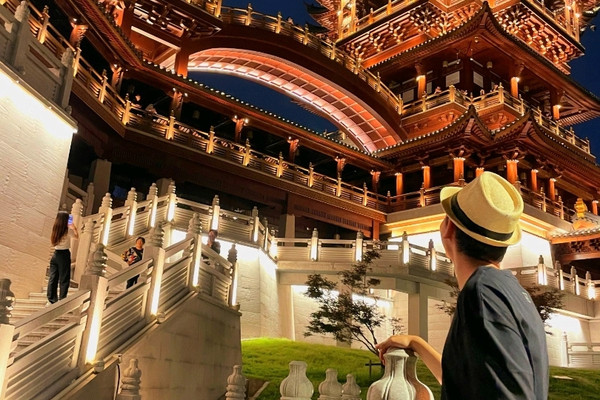
An Essential Guide to Visiting Yiwu Zhengjue Temple
Nestled in the heart of Yiwu, the Zhengjue Temple (宜武正觉寺) stands as a serene testament to the region’s rich cultural and spiritual heritage. A visit to this temple is not just a journey into a sacred space but an invitation to explore the depths of Chinese Buddhism and its architectural splendor. With its intricate carvings, tranquil gardens, and sacred relics, the temple offers a peaceful escape from the bustling markets and vibrant streets of Yiwu.
As you step through the temple gates, the air is filled with the delicate scent of incense, and the soft sounds of chanting create an atmosphere of calm and contemplation. The temple, revered by locals and visitors alike, is a place where one can reflect, meditate, and gain insight into the teachings of Buddhism. The stunning architecture, characterized by classic Chinese design elements, invites photographers and art enthusiasts to capture the beauty of its ornate details.
For international travelers, Zhengjue Temple provides a unique opportunity to engage with local customs and spirituality. Whether you’re lighting a candle for good fortune, exploring the lush surroundings, or simply soaking in the peaceful ambiance, the temple offers a refreshing pause in your travel itinerary. Join us as we delve deeper into the essential tips and highlights that will make your visit to Yiwu Zhengjue Temple an unforgettable experience.
In This Guide
- An Essential Guide to Visiting Yiwu Zhengjue Temple
- The Rich History and Legends of Yiwu Zhengjue Temple
- Main Highlights: What You Absolutely Can’t Miss
- Planning Your Visit: A Practical Guide
- Tickets: Prices, Booking, and Tips
- How to Get There: A Complete Transportation Guide
- Local Cuisine and Accommodation Nearby
- Frequently Asked Questions
- Final Thoughts on Your Trip
The Rich History and Legends of Yiwu Zhengjue Temple
Nestled in the heart of Yiwu, the Zhengjue Temple (宜武正觉寺) stands as a testament to the rich tapestry of Chinese history and culture. Its origins can be traced back to the Tang Dynasty, over a thousand years ago, making it one of the city’s oldest and most revered spiritual sites. The temple was originally established as a place of worship for Buddhism, reflecting the profound influence of this religion in the region.
Throughout its existence, Zhengjue Temple has undergone numerous renovations and expansions, particularly during the Ming and Qing Dynasties. These periods marked a significant flourishing of Buddhist practices in China, and Zhengjue Temple was no exception. The temple’s architecture features traditional elements, such as intricate carvings and vibrant murals, which narrate stories from Buddhist scriptures and Chinese folklore. Visitors are often captivated by the serene ambiance, the scent of incense wafting through the air, and the gentle sound of chanting that permeates the grounds.
One of the most notable legends associated with Zhengjue Temple involves the revered monk Huineng, known as the Sixth Patriarch of Zen Buddhism. It is said that he once visited the temple during his travels across China, imparting wisdom and teachings that continue to resonate within its walls. This connection to Huineng not only enhances the temple’s spiritual significance but also attracts pilgrims and tourists who seek enlightenment and tranquility.
The temple grounds are adorned with various altars, statues, and stupas, each telling a unique story. The main hall, where the principal Buddha statue resides, is particularly noteworthy. It is here that followers come to pay their respects, light incense, and offer prayers for health, happiness, and prosperity. The atmosphere is imbued with a sense of reverence, drawing visitors into a deeper appreciation of Buddhist philosophy and practice.
In addition to its spiritual allure, Zhengjue Temple serves as a cultural hub, hosting various festivals and events throughout the year. The most prominent of these is the annual Lantern Festival, during which the temple is beautifully illuminated, and celebratory activities abound. This event not only showcases the temple’s architectural beauty but also fosters a sense of community among locals and travelers alike.
For international travelers, a visit to Yiwu Zhengjue Temple offers a unique glimpse into the historical and cultural landscape of China. The temple stands not only as a place of worship but also as a living museum of art, history, and spirituality. Whether you’re seeking solace, inspiration, or simply a moment to reflect, the Zhengjue Temple provides a sanctuary where the echoes of the past harmonize with the present, inviting all who enter to embark on their own journey of discovery.

Yiwu Zhengjue Temple.
Main Highlights: What You Absolutely Can’t Miss
Visiting Yiwu Zhengjue Temple is a captivating journey into the heart of Chinese spirituality and culture. Here’s a curated selection of highlights that you simply cannot miss during your visit:
Stunning Architecture
The temple’s architecture is a breathtaking blend of traditional Chinese design and intricate craftsmanship. As you stroll through the temple grounds, take a moment to admire the elaborate eaves, ornate carvings, and vibrant colors that reflect the historical significance of this sacred place. The main hall, with its majestic statue of Guanyin, is a focal point that invites contemplation and reverence.
Serene Gardens
Surrounding the temple are beautifully landscaped gardens that provide a tranquil escape from the bustling city. The lush greenery, complemented by blooming flowers and serene water features, creates a peaceful ambiance perfect for meditation or simply enjoying nature. Be sure to capture the picturesque scenery for your travel memories.
Spiritual Atmosphere
Zhengjue Temple is not just a historical site; it’s an active place of worship. Visitors often find themselves enveloped in a spiritual atmosphere, where the sounds of chanting and the scent of incense fill the air. Take part in a prayer session or observe the rituals, as they offer a unique insight into the practices of Buddhism in China.
Cultural Artifacts
Inside the temple, you’ll find an array of cultural artifacts that tell the story of Zhengjue Temple and its significance in Chinese history. From ancient scriptures to ceremonial items, each piece holds a story that enriches your understanding of Buddhist traditions. Don’t miss the opportunity to engage with the temple staff, who can share fascinating tales and insights about the artifacts.
Local Cuisine
No visit to Yiwu Zhengjue Temple would be complete without indulging in some local cuisine. Nearby eateries offer a selection of authentic dishes that reflect the region’s culinary heritage. Be adventurous and try some vegetarian offerings, which are often served in the spirit of the temple’s teachings.
Photography Opportunities
The temple and its surroundings are a photographer’s paradise. Capture the intricate details of the architecture, the serene landscapes, and the vibrant colors of the flora. Early morning or late afternoon light provides the best conditions for stunning photographs, so plan your visit accordingly.
Events and Festivals
Check the temple’s calendar for any special events or festivals during your visit. These occasions often feature traditional music, dance, and ceremonies that showcase the rich cultural heritage associated with the temple. Participating in these events can provide a deeper connection to the local community and its traditions.
Accessibility
The temple is conveniently located and accessible to visitors. Make sure to check the opening hours before your visit to ensure you have ample time to explore all that Zhengjue Temple has to offer.
With its rich historical significance, stunning architecture, and serene atmosphere, Yiwu Zhengjue Temple promises an unforgettable experience. Whether you’re seeking spiritual insight, cultural enrichment, or simply a moment of tranquility, this temple is a must-visit destination on your journey through China’s vibrant landscape.
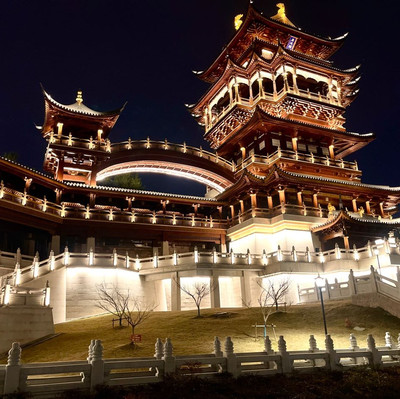
Yiwu Zhengjue Temple.
Planning Your Visit: A Practical Guide
Visiting Yiwu Zhengjue Temple offers travelers a unique opportunity to immerse themselves in the serene beauty of one of China’s lesser-known spiritual sites. With its tranquil atmosphere and rich history, here’s a practical guide to help you plan your visit effectively.
Getting There
Location: Yiwu Zhengjue Temple is located in Yiwu City, Zhejiang Province. The exact address is No. 88, Xueyuan Road, Yiwu City, Zhejiang, China.
Transportation Options:
– By Air: The nearest major airport is Yiwu Airport (YIW). From there, you can take a taxi or local transport to reach the temple.
– By Train: Yiwu Railway Station is well connected to major cities. Once you arrive, taxis and local buses can take you directly to Zhengjue Temple.
– By Bus: Local buses regularly service routes that connect to the temple. Check local schedules for the most convenient options.
Opening Hours and Admission
Opening Hours: Zhengjue Temple is typically open from 8:00 AM to 5:00 PM. It’s advisable to check for any seasonal changes in opening times before your visit.
Admission Fee: Entry to the temple is usually free, making it accessible for all visitors. However, donations for temple upkeep are appreciated.
Recommended Duration
Plan to spend about 1 to 2 hours at the temple. This allows ample time to explore the grounds, admire the architecture, and soak in the spiritual ambiance.
What to Expect
- Architecture: The temple features stunning traditional Chinese architecture, including ornate roofs and beautifully painted halls. Be sure to take your time to appreciate the intricate details.
- Serene Gardens: Wander through the peaceful gardens surrounding the temple, perfect for reflection and photography.
- Cultural Insights: Look for opportunities to engage with local monks or guides who can share insights about the temple’s history and significance.
Tips for Your Visit
-
Dress Appropriately: As this is a site of worship, wear modest clothing. Comfortable shoes are also recommended as you’ll be walking around the temple and gardens.
-
Timing Your Visit: Early mornings or late afternoons are ideal for visiting to avoid crowds and enjoy a quieter experience.
-
Photography: While you’re encouraged to take photos, be respectful of worshippers and the sanctity of the space. Some areas may have restrictions on photography.
-
Local Cuisine: After your visit, consider exploring local eateries nearby for authentic Yiwu dishes. Sampling the local cuisine can enhance your travel experience.
-
Cultural Etiquette: Familiarize yourself with basic etiquette when visiting temples. For example, it’s common to bow when entering and to maintain a respectful silence.
Nearby Attractions
If you have extra time, consider visiting nearby attractions such as:
– Yiwu International Trade City: A bustling market known for its vast array of goods.
– Xiuhu Park: A picturesque park perfect for a leisurely stroll or a picnic.
Conclusion
Yiwu Zhengjue Temple is a captivating destination that offers a glimpse into China’s spiritual heritage. With its tranquil environment and rich history, it’s an excellent choice for international travelers seeking a peaceful retreat. Plan your visit carefully, and you’ll leave with lasting memories and a deeper appreciation of this beautiful temple.
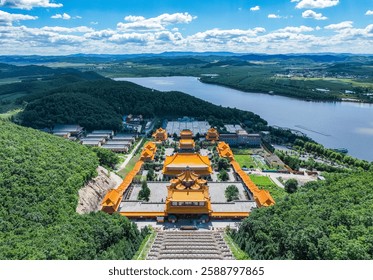
Yiwu Zhengjue Temple.
Tickets: Prices, Booking, and Tips
Visiting Yiwu Zhengjue Temple offers a unique glimpse into traditional Chinese culture and architecture. To make the most of your experience, here’s everything you need to know about tickets, pricing, booking options, and some handy tips.
Ticket Information
Access to Yiwu Zhengjue Temple is quite affordable. The general admission ticket price is CNY 25. This entry fee allows you to explore not only the temple itself but also the surrounding scenic areas that contribute to the serene atmosphere of the site.
Discounts:
– Students: Half-price tickets are available for students with valid identification.
– Seniors: Visitors aged 60 and older can enter for free, provided they present a valid ID.
Booking Your Tickets
While tickets can be purchased at the entrance, it’s a good idea to book in advance, especially during peak tourist seasons or local holidays. You can reserve your tickets through popular travel platforms or the temple’s official website. Simply search for “Yiwu Zhengjue Temple” or “Zhengjue Temple tickets” to find reliable booking options.
Opening Hours
Yiwu Zhengjue Temple typically welcomes visitors from 7:00 AM to 6:00 PM, with extended hours during peak seasons. It’s wise to check the official website or local listings for any changes to the hours or special events that may affect access.
Tips for Your Visit
-
Best Time to Visit: Early mornings are ideal for avoiding crowds and enjoying the tranquil ambiance of the temple. The light at this time is also perfect for photography, especially if you want to capture the stunning architecture against a soft morning sky.
-
What to Bring: Comfortable shoes are a must, as you may want to explore the grounds thoroughly. Bringing a water bottle and some light snacks can also enhance your experience, especially if you plan to spend a few hours on-site.
-
Transportation: If you’re using public transport, the temple is accessible via local buses that connect to major city routes. Alternatively, consider a taxi or rideshare for a more direct approach. For those driving, check for parking availability nearby.
-
Cultural Considerations: As a place of worship, it’s important to maintain a respectful demeanor while exploring the temple. Dress modestly and refrain from loud conversations to honor the spiritual significance of the site.
By following these tips, you can ensure a smooth and enriching experience at Yiwu Zhengjue Temple. Enjoy your journey through this beautiful representation of Chinese heritage!
How to Get There: A Complete Transportation Guide
Reaching Yiwu Zhengjue Temple (宜武正觉寺) is a relatively straightforward endeavor, making it accessible for international travelers eager to explore this tranquil haven of spirituality and culture. Here’s a comprehensive transportation guide to ensure your journey is as smooth as possible.
By Air
Nearest Airport:
Yiwu Airport (YIW) is the closest airport to the temple, located approximately 15 kilometers away. This airport offers both domestic and limited international flights.
Airport Transfer:
Upon arrival, you can take a taxi or book a ride through local ride-hailing apps. The journey from Yiwu Airport to Zhengjue Temple will take around 30 minutes, depending on traffic.
By Train
Train Services:
Yiwu Railway Station is well-connected to major cities in China, including Shanghai, Hangzhou, and Nanjing. High-speed trains frequent these routes, making it a convenient option for travelers.
From Yiwu Railway Station to the Temple:
Once you arrive at Yiwu Railway Station, you can take a taxi or use a local bus service to reach the temple. The taxi ride should take about 20 minutes, while public buses may take slightly longer, depending on the schedule.
By Bus
Long-Distance Buses:
If you’re traveling from nearby cities, long-distance buses frequently run to Yiwu. The main bus station is located centrally, providing easy access to local transport options.
Local Transport to the Temple:
From Yiwu Bus Station, you can take a taxi or a local bus (like Bus No. 1 or 2) that heads towards Zhengjue Temple. The local buses are economical, but ensure to check the latest schedule as they can vary.
By Car
Driving Directions:
If you prefer to drive, Yiwu is well-connected by major highways. The temple is located conveniently within the city limits, making it easy to navigate.
Parking:
There are parking facilities available near the temple, but it’s advisable to arrive early, especially during weekends or public holidays, as spaces can fill up quickly.
Local Transportation
Taxis and Ride-Hailing Services:
Taxis are readily available throughout the city, and ride-hailing apps like Didi are popular among locals and travelers alike. These services provide an easy and efficient way to reach the temple from anywhere in the city.
Bicycles and Walking:
Yiwu is a bike-friendly city, with rental services available. If you’re staying nearby, consider cycling or taking a leisurely walk to the temple, as the surrounding areas are pleasant and offer a glimpse into local life.
Conclusion
Whether you’re arriving by air, train, or bus, Yiwu Zhengjue Temple is easily accessible for travelers from all corners of the globe. With a variety of transport options at your disposal, embarking on your spiritual journey to this serene location is just a few steps away. Enjoy your visit!
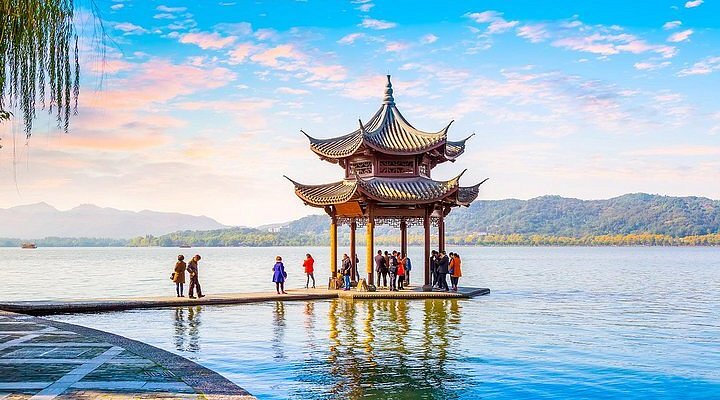
Yiwu Zhengjue Temple.
Local Cuisine and Accommodation Nearby
When visiting Yiwu Zhengjue Temple, you’ll want to immerse yourself not only in the serene ambiance of the temple but also in the local flavors and comfortable accommodations that this vibrant region has to offer. Here’s a curated guide to your culinary and lodging options nearby.
Savor Local Flavors
1. Yiwu City Food Market
Just a short stroll from the temple, the Yiwu City Food Market is a paradise for food lovers. Here, you can indulge in an array of street food delights. Be sure to try Xiaolongbao, delicate soup dumplings filled with savory broth, and Jianbing, a popular Chinese pancake stuffed with eggs, vegetables, and a variety of sauces. The market buzzes with life, making it an excellent spot to soak in the local culture while enjoying your meal.
2. Minghu Restaurant
For a more sit-down experience, head to Minghu Restaurant, renowned for its authentic Zhejiang cuisine. The Braised Fish in soy sauce and Stir-Fried Seasonal Vegetables are local favorites that reflect the region’s culinary heritage. The restaurant’s warm atmosphere and friendly staff will make your dining experience even more enjoyable.
3. Zhejiang Dumpling House
If you’re in the mood for dumplings, this charming eatery offers a delightful selection. The Pan-Fried Dumplings are crispy on the outside and juicy on the inside, while the Steamed Buns provide a fluffy alternative. Pair your meal with a cup of traditional Chinese tea for a complete experience.
Comfortable Stays
1. Yiwu Shangri-La Hotel
For those seeking luxury, the Yiwu Shangri-La Hotel is an ideal choice. Located conveniently near the temple, it offers elegant rooms with stunning views and top-notch amenities including a spa, fitness center, and multiple dining options. The hotel’s modern design and exceptional service ensure a relaxing stay after a day of exploration.
2. GreenTree Inn Yiwu
If you’re looking for budget-friendly accommodations, GreenTree Inn provides clean and comfortable rooms without breaking the bank. The hotel is known for its friendly staff and convenient location, making it easy to access local attractions and eateries.
3. Hanting Hotel Yiwu
Another economical option is Hanting Hotel, which offers a cozy atmosphere and essential amenities. With its comfortable beds and complimentary breakfast, it’s a great base for your adventures around Yiwu.
Final Thoughts
With a blend of delicious local cuisine and a variety of accommodation options, your visit to Yiwu Zhengjue Temple can be both fulfilling and comfortable. Whether you’re enjoying street food in the bustling market or unwinding in a luxurious hotel, you’ll find that Yiwu offers a unique and enriching experience. Don’t forget to take some time to appreciate the harmonious surroundings of the temple as you savor the local culture!
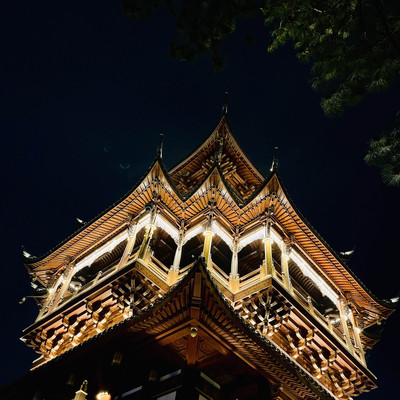
Yiwu Zhengjue Temple.
Frequently Asked Questions
-
Where is Yiwu Zhengjue Temple located?
Yiwu Zhengjue Temple is situated in Yiwu City, Zhejiang Province, China. You can easily find it near the bustling markets of Yiwu, which are famous for their diverse range of goods. The exact address is No. 88, Zhengjue Road, Yiwu City. -
What are the opening hours of the temple?
The temple typically opens daily from 8:00 AM to 5:00 PM. However, it’s always a good idea to check for any seasonal changes or special events that might affect these hours. -
Is there an entry fee to visit Yiwu Zhengjue Temple?
Good news! Entry to Yiwu Zhengjue Temple is free, making it an accessible destination for all travelers. Donations for the preservation of the temple are appreciated but not mandatory. -
How long should I plan to spend at the temple?
A visit to Yiwu Zhengjue Temple usually takes about 30 minutes to an hour. This timeframe allows you to explore the temple grounds, admire the architecture, and soak in the serene atmosphere. -
What should I wear when visiting the temple?
When visiting Yiwu Zhengjue Temple, it’s recommended to dress modestly and comfortably. Wearing shoes that are easy to remove is advisable, as many temples require visitors to take off their shoes before entering certain areas. -
Are there any local transportation options available?
Yes! Yiwu has various local transport options, including buses and taxis, which can take you to the temple. If you’re coming from Yiwu International Trade City, it’s just a short taxi ride away. -
Can I take photos inside the temple?
Photography is usually allowed in the temple grounds, but be respectful of others and adhere to any specific guidelines posted. It’s best to avoid taking photos during prayer times or when ceremonies are taking place. -
Are there any nearby attractions to visit after the temple?
Absolutely! After visiting Yiwu Zhengjue Temple, you can explore the Yiwu International Trade City, famous for its wholesale markets, or take a stroll around the nearby parks for a complete day of sightseeing.
Final Thoughts on Your Trip
As you prepare to leave Yiwu Zhengjue Temple, take a moment to reflect on the serenity and beauty that this hidden gem offers. Nestled amidst the bustle of the city, the temple stands as a testament to the rich cultural heritage of China, inviting travelers to pause, breathe, and embrace a moment of tranquility.
Wandering through the temple grounds, you’ve likely encountered the delicate architecture, the vibrant colors of the prayer flags fluttering in the breeze, and perhaps even the gentle sound of chanting that resonates through the air. These experiences not only enrich your journey but also provide a glimpse into the spiritual heart of the region.
Whether you came seeking spiritual guidance, a slice of history, or simply a peaceful retreat, Yiwu Zhengjue Temple has a way of leaving an indelible mark on your travel memories. As you head back into the vibrant streets of Yiwu, carry with you the tranquility of this sacred space, allowing it to inspire your adventures ahead.
Remember, every journey is about discovery, and sometimes the most profound insights come from the quietest places. Until your next adventure, may your travels continue to be filled with wonder and discovery. Safe travels!